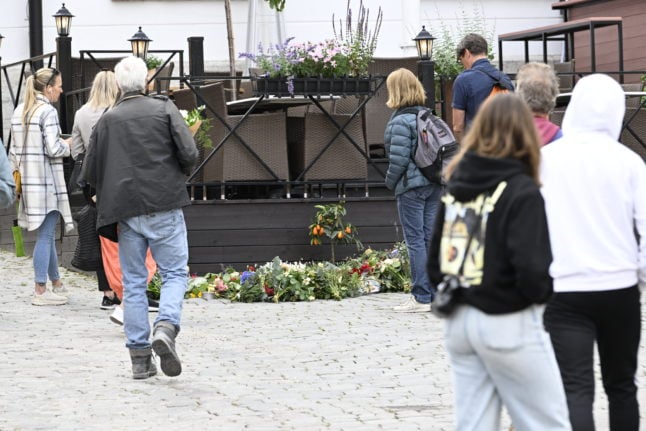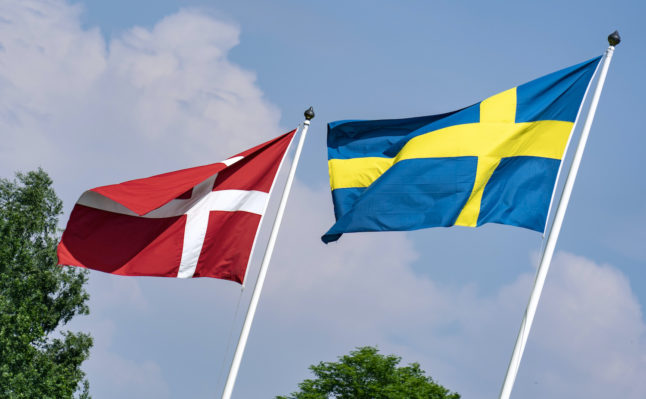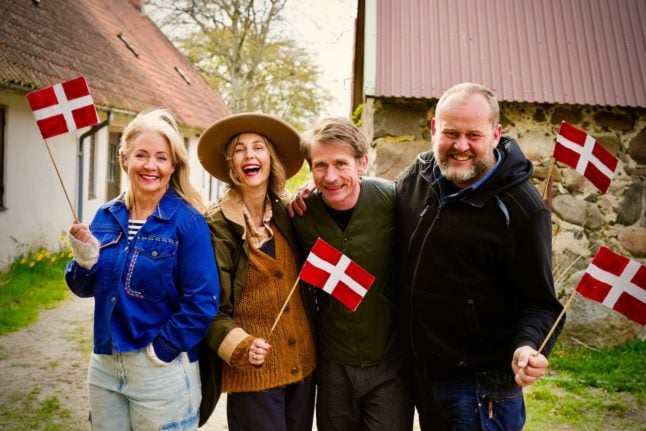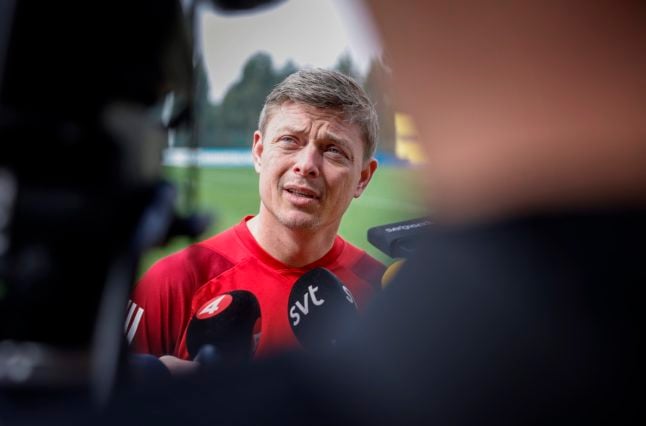Oslo, Copenhagen, and now Visby. Norway, Denmark and Sweden have all witnessed shocking bloodshed in the space of two weeks.
Two were shot dead and about 20 injured when a man opened fire at a gay bar in Oslo on June 25. And on July 3, three were killed and several injured by a gunman at a shopping centre in Copenhagen.
This time the location was Sweden’s annual festival of politics in Almedalen park on the island of Gotland.
The festival was held this week in the shadow of the Russian military threat, but on Wednesday it became tragically clear that the immediate danger was from within.
Ing-Marie Wieselgren was stabbed to death at the heart of Almedalen, amid a throng of people there to take part in the week of debates. Wieselgren was one of Sweden’s leading voices on mental health as a national coordinator for SKR, the organisation representing local government.
She took part actively at Almedalen, recording a daily video blog with her thoughts on mental health. Her final words, filmed on the morning of her death, reflect on how we can equip children mentally to deal with life’s ups and downs. It is a grim irony that her killer was likely motivated by her public commitment to mental health issues, according to the prosecutor in the case.
But this was more than an isolated assault by a sick man with a grudge. Wieselgren’s murder was an attack on Swedish democracy. Large gatherings where political leaders and public figures mingle with crowds are vulnerable to fanatics. People will think twice before coming to Almedalen again, and those who do will feel a shiver of concern for their own safety. Politicians will wonder if they could be next.
The day before the attack, the chief of Sweden’s security police, Säpo, was at Almedalen, where she spoke to the press. It is not only foreign powers that threaten Sweden, Charlotte von Essen said: “The climate of debate is polarised and extremism is growing within it, which can lead to violent extremism. The threat comes from both violent Islamist extremism and right-wing extremism. There are individuals who have both the intention and the ability to carry out an assassination.”
Swedish media were quick to pick up on connections between Wednesday’s killer and the neo-Nazi Nordic Resistance Movement (Nordiska motståndsrörelse), or NMR. The man was active in the NMR for several years until at least 2018, writing for its website and taking part in its demonstrations, according to Expo, which monitors the extreme right.
While the NMR had no visible presence at this year’s Almedalen, the festival has had a problem with the organisation’s aggressive behaviour in recent years. In 2017 there was uproar when the neo-Nazis were allowed to formally take part in Almedalen for the first time. In 2018, NMR supporters assaulted a woman, while its uniformed thugs marched through the town and interrupted Centre Party leader Annie Lööf’s speech with shouts of “traitor”. The following year, gay and trans rights organisation RFSL pulled out of the event because of neo-Nazi threats.
Although police said the NMR connection is not a central focus of their investigation, the Almedalen killer’s recent background with the neo-Nazis can be no coincidence. The organisation is imbued with violence and a hatred for liberal democracy – hardly surprising given its ideology. Participants in NMR demonstrations are often uniformed and armed with long staves and shields. In 2016-17 the organisation’s supporters were involved in a series of deadly attacks, including planting bombs at homes for asylum seekers and an anarchist bookshop.
A few hours after Wednesday’s tragedy, a visibly shaken Annie Lööf delivered her scheduled speech to Almedalen. She praised the police, ambulance workers and bystanders who had helped capture the attacker and tried to save Wieselgren’s life. She drew a connection between the horror of what had happened and the daily horrors inflicted by the Russian army on Ukrainians.
Echoing the words of Moderate party leader Fredrik Reinfeldt at Almedalen eight years ago, she praised those who “open their hearts”, homes and schools to Ukrainian refugees.
The very fact that Lööf’s speech went ahead was a signal that this deep wound to Sweden’s body politic can heal. The country is familiar with violence aimed at politicians and politics. From the shooting of prime minister Olof Palme outside a cinema in 1986 to the 2003 stabbing of foreign minister Anna Lindh on the steps of a department store, Swedes know what the shock of an assassination in a public place feels like.
Each time, after the mourning and soul-searching, Sweden has recovered from these blows and maintained its tradition of openness. When Uzbek asylum seeker Rakhmat Akilov drove a truck through shoppers in central Stockholm in April 2017, killing five and maiming many more, he was motivated by the hatred of Islamic State for western values. But the crowds of people who came out onto the streets the following day were clear about the importance of defending their freedoms.
A popular political event like Almedalen can never be 100% safe, and no democracy can ever promise total security to its citizens. That is the price we pay for the freedoms we normally take for granted. Ing-Marie Wieselgren will not be forgotten. Next year’s Almedalen will take place in defiance of violence, in defiance of extremism, and with an even greater appreciation of the event’s broader significance as a symbol of Swedish openness and democracy.
David Crouch is the author of Almost Perfekt: How Sweden Works and What Can We Learn From It. He is a freelance journalist and a lecturer in journalism at Gothenburg University.





 Please whitelist us to continue reading.
Please whitelist us to continue reading.
Member comments